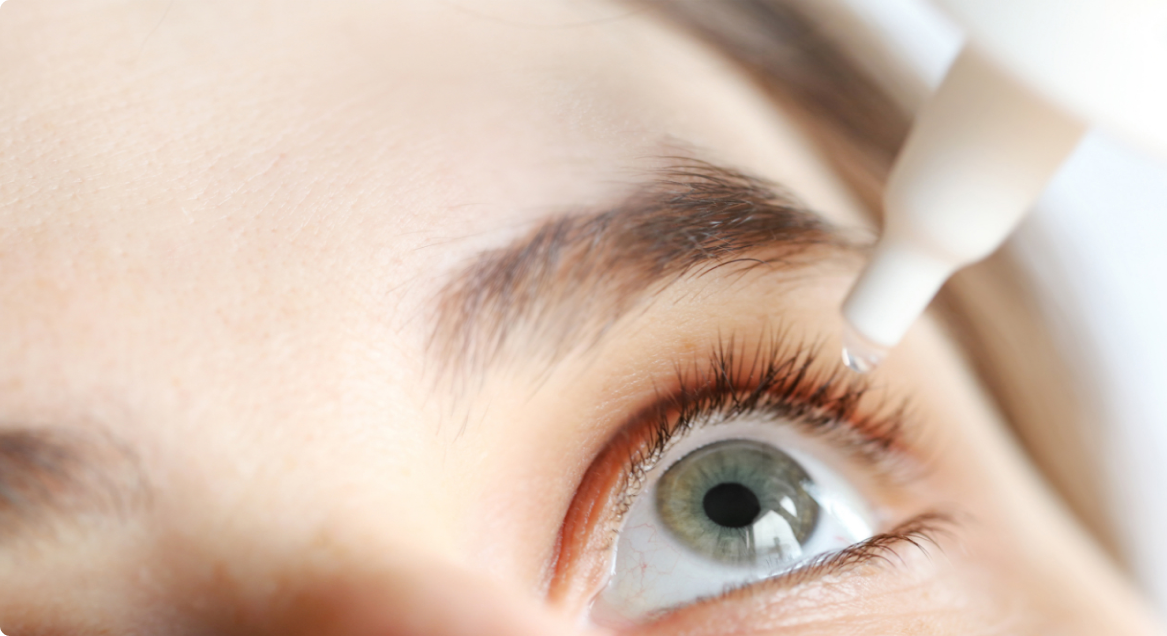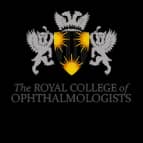
Dry eye syndrome symptoms and vision testing from our London Clinic
What is included in my private consultation?
- A comprehensive consultation with your dedicated ophthalmologist (inclusive of all eye assessment and eye scans)
- A medical diagnosis of your eye condition with treatment planning
- A signed prescription (if required) and/or vision correction treatment planning
- A dedicated eye care team to support you throughout your eye care journey
Managing your dry eye syndrome
Depending on the cause of your dry eyes, replacement drops may be prescribed as a substitute treatment.
In some rare dry eye cases it may be necessary to graft new cells into your conjunctiva. The conjunctiva is a clear and thin, protective layer which forms mucus in the eye. Grafting new cells produces fresh mucin if your eyes are defective.
Friendly vision correction treatment for dry eyes

Hear from our satisfied patients




Dry eye Frequently asked questions
Have a question? We are here to help.
What is dry eye syndrome?
Dry eye syndrome is when the tears in your eye have an insufficient production of lubrication or excessive tear evaporation which is why you can experience symptoms of irritation by the lack of moisture in your eyes. Dry eye syndrome can lead to various symptoms and discomfort, including:
- Dryness – A persistent sensation of dryness or grittiness in the eyes
- Redness – The eyes may appear red or bloodshot
- Irritation – Irritation, itching, or burning sensations in the eyes
- Excessive tearing – Paradoxically, some people with dry eyes may experience excessive tearing as a reflex response to the dryness
- Blurred vision – Vision may become temporarily blurred or fluctuate due to insufficient tear film
- Sensitivity to light – Increased sensitivity to light, known as photophobia
- Eye fatigue – Discomfort and fatigue, especially during activities that require prolonged visual concentration, such as reading or computer use.
What are the main causes of dry eyes?
Dry eyes can be caused by everyday disposable contact lenses, demodex, eye drops, eye makeup and autoimmune diseases such as rheumatoid arthritis. When you visit My-iClinic for a private consultation, our ophthalmologists will carry out eye assessments and any further investigations needed to diagnose the cause of your dry eye symptoms. Several factors can contribute to dry eye syndrome, including:
- Aging – Dry eye is more common in older individuals.
- Gender – It is more prevalent in women, especially after menopause.
- Environmental factors – Dry or windy climates, air conditioning, and heating can exacerbate symptoms
- Medical conditions – Conditions like autoimmune diseases (e.g., Sjögren’s syndrome), diabetes, and thyroid disorders can affect tear production
- Medications – Some medications, including antihistamines, decongestants, and certain blood pressure medications, can contribute to dry eyes
- Prolonged screen time – Staring at screens for extended periods can reduce the frequency of blinking and contribute to dryness.
What are the common symptoms of dry eyes?
Patients who have dry eyes express their symptoms as:
- Blurry vision
- Excessive watering in their eyes
- Itchy vision
- Sensitivity to light
- Painful eyes
- Difficulty reading, driving & performing daily routine tasks
Do dry eyes go away?
Dry eye syndrome rarely goes away on its own. There is no cure for dry eyes but the condition can be easily managed with ongoing treatment. If you are concerned about dry eye syndrome please contact our specialist team on 0208 445 8877 for more information about a private consultation with our ophthalmologist.
What can happen if dry eye syndrome goes untreated?
Dry eye syndrome can be managed by ongoing treatment to remission any discomforting symptoms. Dry eyes can, in some cases, develop corneal ulcers and cause vision loss. In some cases the corneal surface can be damaged. Some of the potential consequences of untreated dry eye syndrome include:
- Corneal damage – The cornea is the clear, front surface of the eye, and it relies on a stable tear film for protection and nourishment. Without an adequate tear film, the cornea can become vulnerable to damage, which may result in corneal abrasions or ulcers
- Vision disturbances – Dry eye can cause fluctuations in vision, making it difficult to focus clearly. Blurred vision and intermittent visual disturbances may interfere with daily activities such as reading or driving
- Increased eye discomfort – Over time, untreated dry eye can lead to persistent and sometimes severe eye discomfort, including a burning or gritty sensation, redness, and sensitivity to light
- Reduced quality of life – Chronic discomfort and vision disturbances can significantly impact a person’s quality of life, making it difficult to perform tasks that require clear vision and comfort, such as working on a computer, reading, or enjoying outdoor activities
- Conjunctivitis – Dry eye can increase the risk of developing conjunctivitis, commonly known as pink eye, which is an inflammation of the conjunctiva (the thin, transparent layer covering the white part of the eye and the inner surface of the eyelids)
- Infections – Severe dry eye can lead to a breakdown in the eye’s natural defence mechanisms, making it more susceptible to eye infections
- Difficulty wearing contact lenses – People with untreated dry eye may find it increasingly uncomfortable or even impossible to wear contact lenses, as the lenses can exacerbate dryness and discomfort.
Is it normal to have dry eyes in one eye?
In rare cases dry eye symptoms can be experienced in one eye, although dry eye syndrome usually affects both eyes. If you are experiencing dry eye symptoms in one eye we can carry out ophthalmic assessments to investigate the cause of your symptoms and find a suitable treatment.

